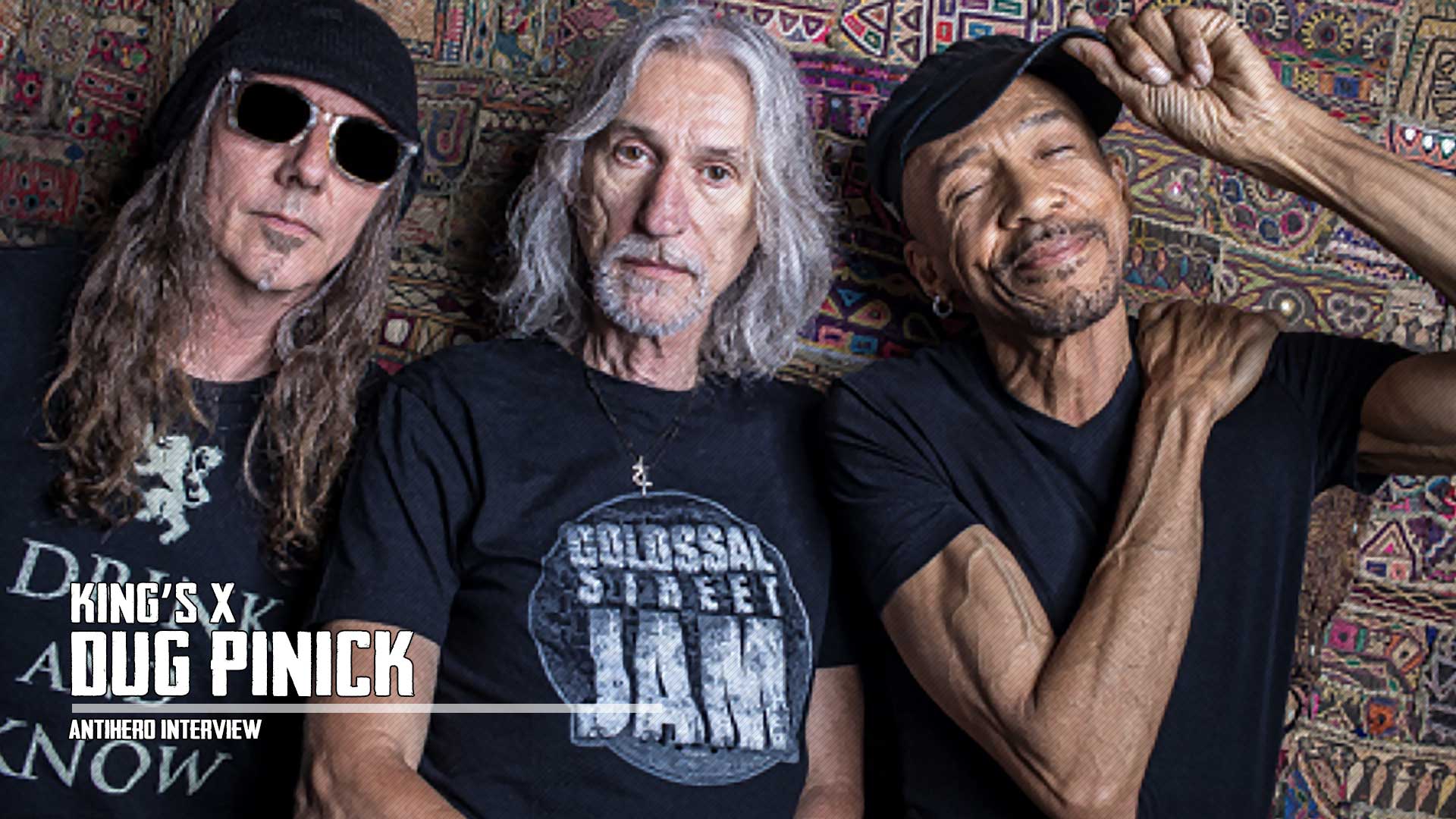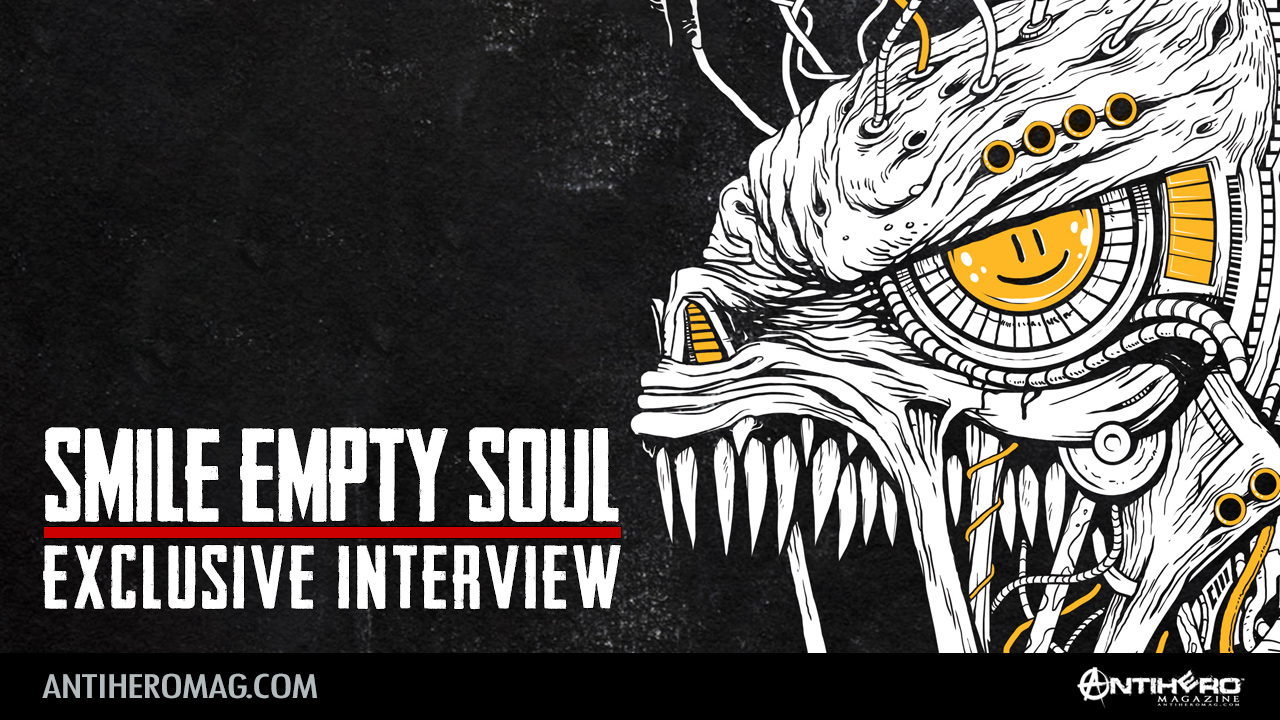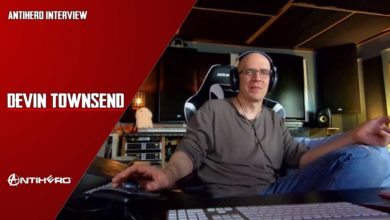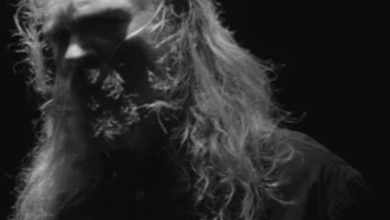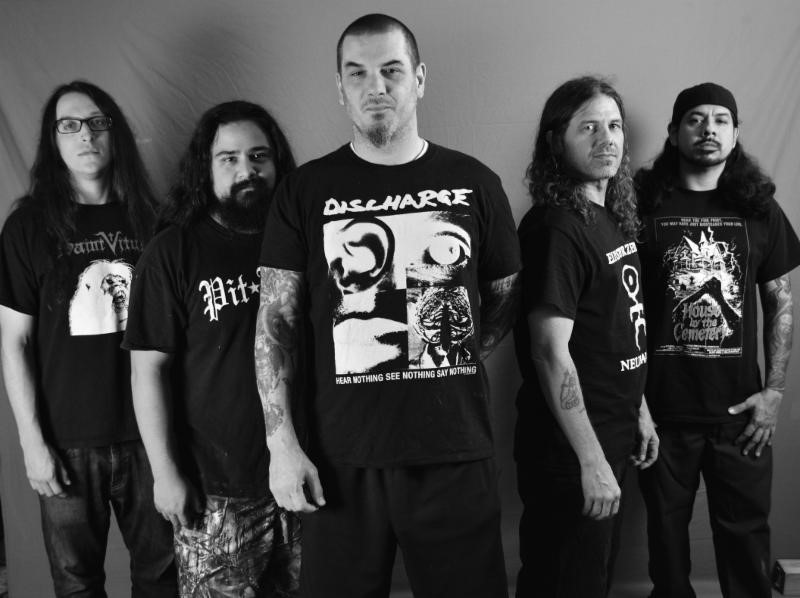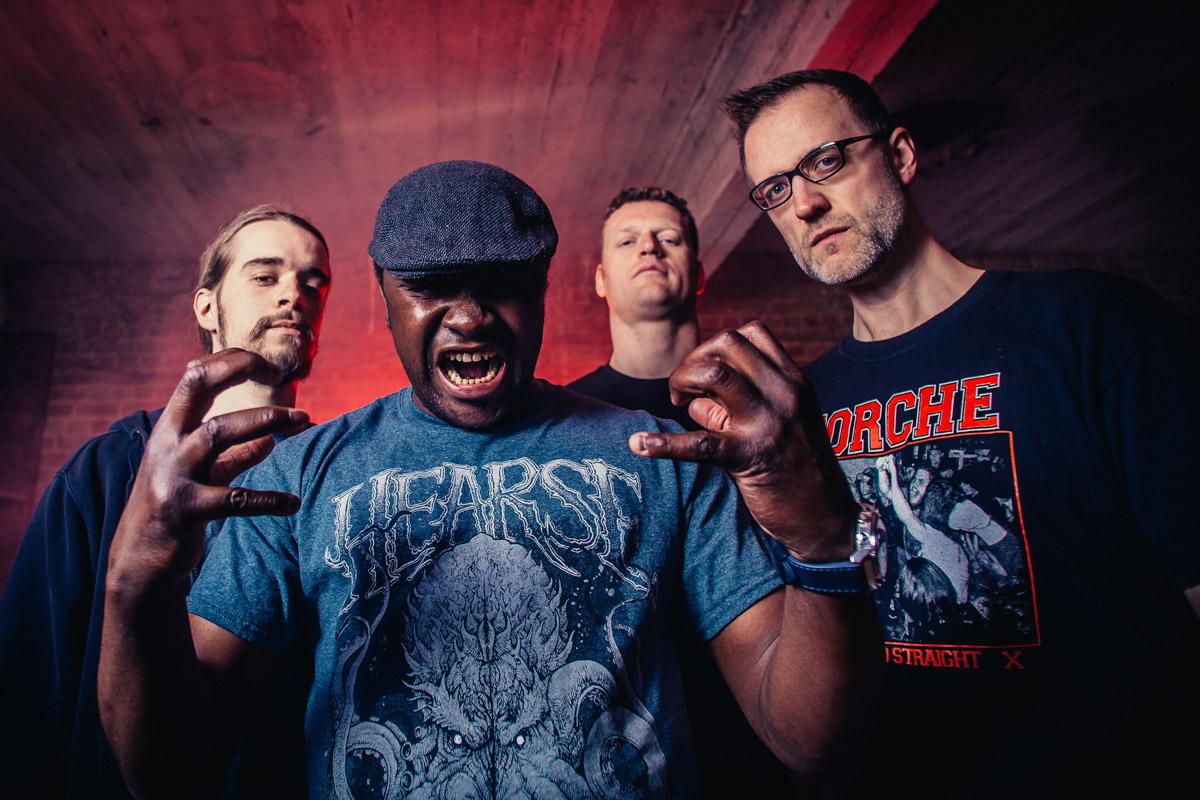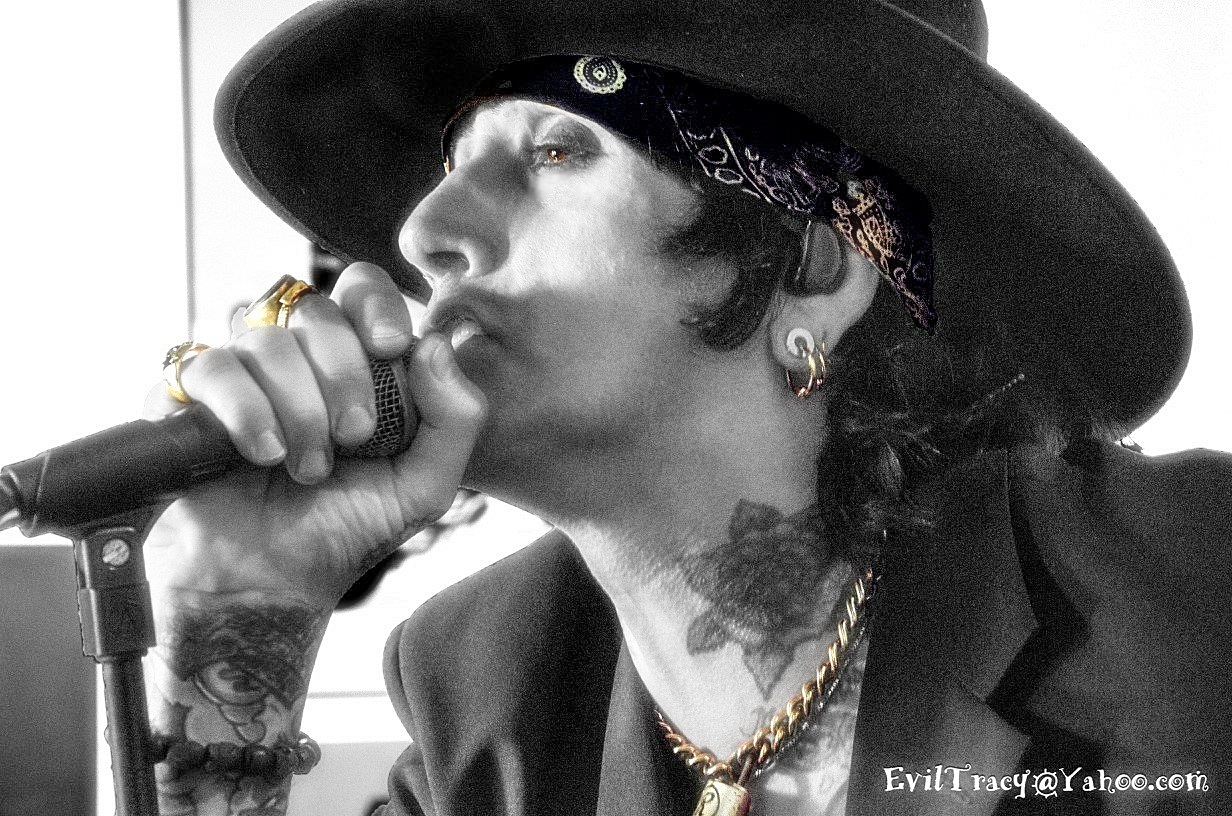The legendary King’s X, comprised of dUg Pinnick, Ty Tabor & Jerry Gaskill, recently announced the release of their 13th studio album ‘Three Sides of One’ on the 2nd September 2022, representing their first new music in 14 years.
The band just released the second track from the album, and you can listen to ‘Give It Up’ here: https://youtu.be/99pyxedohpk
dUg comments: “After I turned 71, death was on my mind every day,Chris Cornell killed himself, and I was thinking of that. Lyrically, it’s about not giving up until you naturally die. I want to ride it out until it’s over. I’m laughing about how I haven’t gotten a will yet, but I should have one. Musically, I wanted it to be really simple, so you can dance to it.”
Listen to the bands previous single ‘Let It Rain’ here: https://www.youtube.com/watch?v=BWUrrCB_Ulo
‘Three Sides of One’ will be available as Limited CD Digipak, Gatefold 180g 2LP+CD+LP-booklet & as a Digital Album. There will also be a Limited Deluxe 180g Orange/Red Marble 2LP+CD+LP-booklet that also includes a poster and a hand-numbered print, as well as an exclusive variant of the front cover artwork. Pre-order now here: https://kingsx.lnk.to/ThreeSidesOfOne
During 2019, the members congregated at Black Sound Studio in Pasadena, CA with Emmy Award-winning producer Michael Parnin to bring ‘Three Sides of One’ to life. Despite consistent touring, they hadn’t cut a new LP since 2008. Nevertheless, the guys picked up where they left off. Creative confidant and collaborator Wally Farkas rolled through, and they channelled their incredible chemistry on tape.
Of the new album, dUg Pinnick comments:
“When I think of it, King’s X feels like a couple of old best friends coming together, shooting the shit, and having a good time, it’s instinctual. When I would listen to demo tapes of Jerry and Ty for the record, it gave me a great perspective on how blessed I am to be in King’s X. What they did on Three Sides of One sounded so good. For as familiar as it is, it’s like I’m in a new band.”
Ty adds:
“This time, we sat around, listened to each other’s ideas, and would collectively say, ‘Let’s work on that’. It was the most enjoyable album I’ve personally ever recorded in my entire life, period.”
Jerry continues: “I’ll cherish what we did in my heart forever. Everything lined up perfectly.”
I have been a huge fan of the band since their early album releases Out of The Silent Planet and Gretchen Goes to Nebraska in the eighties. I was also fortunate to have seen the band twice in Belfast as support to AC/DC in 1991 and at their own small headlining gig several years later.
ANTIHERO: The new album, Three Sides of One, is about to be released. It’s, quite surprisingly, the band’s first new album in quite a while. Was it a conscious decision to put the band on hold for a while to follow other things musically? Obviously, you individually have pursued solo projects, or was it something that just happened?
dUg Pinnick: It just happened. Nobody wanted to make a record. So, I just kept making music with other bands. And Ty and Jerry did a couple of solo records themselves, and I’d say, “Hey, let’s make a record,” and they’d go, “No, we ain’t ready.” They just didn’t want to, and didn’t feel like we had anything to offer. And so, we went with that, until one day we all got together, and we were hanging out and we played some music that each other had been writing. And we said, “Oh wow, this is not bad. Maybe we should work on a record.” And 14 years later we go, “Yeah, let’s do this. I think we’re ready.”
ANTIHERO: Do you think it feels like a rebirth or rejuvenation of King’s X?
dUg Pinnick: Yeah, rejuvenation. Because it’s sort of like when you are in a marriage, and you take a vacation from each other for a while, and you actually fool around with other people and do things that you never thought you’d do. And either you come back and appreciate what you have, or you come back and realize you don’t want that. And for me, and, I don’t know, I can’t speak for the other guys, but just being with other bands helped me appreciate King’s X, even more than… It helped me really see us as who we are as a band. And it’s something I didn’t realize before.
ANTIHERO: What about the album creation process? Has that changed any, since you first recorded that debut album way back, many, many years ago?
dUg Pinnick: That’s how we always do things. This time there was just no stress, no arguing, and no fighting. We just really trusted each other and went with everyone’s gut feelings on everything. And as a result of it, we really like the result of this record. We feel like it’s a great representation of us now, 40 years later.
ANTIHERO: Yeah. I first saw you live. You supported AC/DC in Belfast back in 1991, and then you actually returned to Belfast a few years later. Obviously, you have played many shows, I just wonder if you had any memories of playing Belfast and going to Ireland? ‘Cause, not many bands actually played live in those years.
dUg Pinnick: Yeah. I remember looking out the window in the tour bus and all I saw were barricades everywhere. That was a long time ago. And that was when people were getting bombed and stuff. So, it was a shock. I had never seen a city that had that much concrete piled up in front of things. And that’s when I realized that there’s another world out there besides the United States, and they have their issues. I remember everyone’s accent. I couldn’t understand anyone. And I loved playing Belfast both times. And I love the people. And I have a really great friend named Jay who lives in Belfast, and, to this day, he’s married and has a family. And he’s a great guy and we’ve been friends since King’s X first played there. And I remember Dublin because it was so different. The accent was different, and it was more peaceful. And I remember walking the streets in Dublin and I went to a music store and bought some CDs, and it was really cool. And I always wanted to come back to Ireland, and I have a love for Ireland because of U2, Simple Minds and Big Country, and those kinds of bands that came out of that era, Cactus World News. I think those were all fans who came from Ireland, and I love that whole Irish vibe that came into rock and roll at that time. It really changed my life.
ANTIHERO: When I told a few friends that I’d be talking to you tonight, they were actually surprised that King’s X were still around.
dUg Pinnick: Yeah!
ANTIHERO: Obviously, you achieved a degree of success, but do you feel the band should maybe have achieved more?
dUg Pinnick: We’ve achieved more success, just because we’ve been around a long time, and we’re still the underdog in so many ways. And whatever part we played in the music community, I’m really proud of and I’m happy about.
ANTIHERO: I think part of the reason I feel you didn’t be as well-known as maybe you should have been, is the fact that your music is also hard to define. It didn’t fit into any boxes. It didn’t fit into any categories.
dUg Pinnick: Yeah. I could argue about that though. Because think about Queen, or Put on a Yes album, and they sold millions of records, and their music was no more complicated and no more over the top than King’s X. The reason people didn’t like King’s X and we did not become a humongous band is that they just didn’t like us. Sometimes you can go to the music store and one band you like and one band you want. It’s just the way it is. It has nothing to do with anything. We just didn’t have enough salt in our music and no sugar in our music. You know what I’m saying? But the cool thing about it is we’re still here and people still have an appetite for King’s X and there are still people being turned on to King’s X. And so that just makes this part of the journey even better. And also because of the way our career has gone, I think I’m better… I see the world in the way that I… How do I put it? It’s been liberating to be able to walk along with friends on the mountaintop, but then go back to the ghetto and hang out. You know what I’m saying? It’s good. I’m not so famous that I can’t go outside and hang out and go someplace. I get just enough attention. That’s all you need.
ANTIHERO: I also noticed while doing my homework, you finally had a book written about you. How was that process? Was that something you’ve always wanted to have done and you didn’t have time? Or did the right offer come along? What about the book?
dUg Pinnick: Yeah, a friend of ours who’s a fan and a friend, Greg Prato, he’s done a lot of autobiographies and biographies on rock bands. And he approached our management and said, “Hey man, can he do one on King’s X?” And so we worked out a deal with the book company and all that stuff. And he went on and it took him a year to finish the book, but he did it and it’s just a part of being in a band, I guess. Everybody needs a book. Everybody’s got a story.
ANTIHERO: Yeah. How did you find that process? Were you actively involved in working on a day-to-day basis with the author?
dUg Pinnick: No, no, no. We just let him do his thing. The only thing I think we asked for was to talk to other people about us. We don’t always like to talk about ourselves. And so, he did. He went out and found all these, very influential, famous peers to honestly say things about King’s X that only you’d want to hear. The book was overwhelming to me to hear some of the stories from these people that I know.
ANTIHERO: How have you found the significant changes in the music industry since you first started out? Has it been a gradual change? Has it been a sudden transformation in how it operates for you as a musician and artist?
dUg Pinnick: No. It was… When 2000 came around, the brakes were put on everything and all of a sudden everybody’s broke, nobody can earn like before… Any band can now because you won’t make any money selling CDs. And you’ll have to, to make $10, you have to have a billion views on YouTube or Spotify. And for everybody, in many ways, no matter what level you are on. If you’re selling millions and millions of records, you’re putting out a lot of money to pay for all the people that take care of your band, your touring, your management, and your CPAs. So, you have to make money too. And if people don’t have money, then you can’t go out and sell arenas out because people ain’t got no money. So, every one of us was affected, and we’re all trying to get back to normal.
Did you notice, that right when the pandemic was just about over, every big band in the world went out immediately? And I’m thinking, “Wow, everybody’s out.” And then I thought, “Oh yeah, they need to go out. They have been off for over a year and their overhead is millions of dollars a day.” So, we all have to suffer. And I get social security. I’m 72 years old. I get the same paycheck every month. So that’s enough to pay my bills and to eat. And so, I’m okay. So, King’s X is icing on the cake, and I have a pedal and a Signature Bass, so people buy that and every now and then some money comes in. So, at the end of the day, my whole life I’ve got to do what I wanted to do and make a living at it.
ANTIHERO: It must be a little frustrating, though, that you pour your heart and your soul into creating music, and in the current world, people are happy enough to just download it for nothing. They don’t give anything back.
dUg Pinnick: Yeah, at one time it was, but that was because I was insecure, and I needed validation. And I woke up one day and realized everybody’s not going to like you, it’s stupid to even think that. And if someone doesn’t like you, it has nothing to do with you or what you are doing or what you’ve done. It’s their opinion and only their opinion. And it has nothing to do with me, so why should it bother me? And then I finally got to the point where it doesn’t matter what anybody thinks anymore because I’m okay. I’m 71 years old. I have nothing to prove anymore. And I look back at what I’ve done, and I go, “That’s who I was and that’s what I did. And I’m glad I got to do it. And I got paid for it.” I think it’s a wonderful, beautiful thing. So, there’s no regret.
People always ask me if there was anything I could change, would I change it? And I don’t know, because at this moment in my life, literally, I’m doing better than I’ve ever done in my life, and my mind and my heart are in peace, and my perception of who I am of life, spiritually. I’ve settled into a good place.
ANTIHERO: So how do you view the musical legacy of the band? Is it something that must fill you with pride in what you created? Those individual albums? Do you look back or do you prefer to focus on what’s ahead?
dUg Pinnick: Being able to look back at the years, I start to smile more, because it was so long ago. You realize how good you were. You didn’t realize it back then. You didn’t know it. And I’m glad I did. ‘Cause, what pushes you is your displeasure with what you’re doing, and you want to make it better. If I loved what I did, I would not be happy right now. … I was trying to play a song. And I always said, “If you reach for the universe, you might get to the moon or at the top of the tree, but you have to really reach.” You got to believe. Go for it. And then look at what’s going on around you in that adventure, because it is. Life is an adventure. Being a musician is a lifetime adventure. If you got into it to be rich and famous by the time you’re 25, then you need to get out because you’re not there for the right reasons, or you need to be honest with yourself and go play the game and be a fucking star. You know what I’m saying?
ANTIHERO: And it’s good for people to still hold on to hopes and dreams?
dUg Pinnick: Forget the hopes and dreams. It’s an adventure. Hopes and dreams are bullshit. ‘Cause, we all dream and hope, and have we ever gotten anything that we’ve dreamed and hoped? No. But the thing is, always dream and always hope, because then you’ll have a reason to come up with things to dream about and to hope for when you do it. But the dream and the hope, it’s not the end, because that never happens. Everybody I know, still, is trying to better themselves or make more money or make a better record or do something better than they did before. Every level of musician that I know always feels like they didn’t make it, they didn’t sell enough. From whatever level they still believe, “Oh, I still got to reach this goal.” So, at the end of the day, you got to look at the adventure of it. The fun of it. What did you do? Did you have a good time when you look back or did you just have a whole bunch of stuff that you’re going to die and leave to your kids?
ANTIHERO: Are you guys back out playing live again? Obviously, you have had to cancel European shows.
dUg Pinnick: But yeah, we did some shows a couple of weeks ago, and like most musicians, we were kind of afraid. Can we do this again? It’s been a year and a half, two years since we’ve been out. And we went out, and it was a struggle, but nobody seemed to know it. Nobody seemed to care. We had a good time, and we were realising how we can do this. We’re booking shows. We still have to wait for Ty’s diagnosis on his immune problem, then we can really go out on tour properly. So, everything’s in the air right now, but the new album will be out soon. And so that’s what we’re focused on right now.
ANTIHERO: What about those live shows? Did you manage to play some new tracks?
dUg Pinnick: Yes, we did. We did the two singles, “Let it Rain” and “Give it Up,” and then we did “All God’s Children.” It’s another song off the record that no one’s heard. It’ll be up on YouTube in about a week. You can hear it on YouTube, I think, live in New York.
ANTIHERO: I have been lucky enough to actually hear the whole album.
dUg Pinnick: Cool.
ANTIHERO: I love it. Absolutely love it. And I’m not just saying that because we’re talking here. It’s on par with anything from your past. It’s even, I think, moved things forward. It’s a more modern-sounding King’s X. It’s really, really good.
dUg Pinnick: Thank you. Thank you. That means a lot to me.
ANTIHERO: Just the final one then. I’m sure you’ve done many interviews over the years, but if you could sit down and interview somebody that’s inspired you or a personal hero, who would you like to interview?
dUg Pinnick: Well, I actually interviewed Roger Glover.
ANTIHERO: That must have been a great experience for you.
dUg Pinnick: He was one of my favorite bass players, and I really learned a lot when I was learning how to play, listening to Machine Head. And I literally got to go with a friend of mine who was going to interview him on a little TV show, and I told her what a big fan I was of his, and so she let me interview. It was so cool. And then he interviewed me because he was a King’s X fan.
ANTIHERO: Wow. What an experience that must have been for you personally.
dUg Pinnick: That was cool. That was really cool. But interviewing someone, oh my God. Let’s think about this for a minute. I guess… I don’t think… God, there are so many people I’d like to interview. I would like to interview Bono, because, I don’t know, he affected me in a big way in the eighties when the first two records came out. And I would like to talk to him, because, as a Christian back then, which I’m not now, but as a Christian back then, he was my gateway out of the hypocrisy that I found myself trapped in and didn’t know how to get out of. He let me know it was okay, to be honest, and say what I felt about my faith. It was really liberal for me. So that… Yeah, Bono really said… And he was always honest about things, and everything he said always made sense to me. So yeah, Bono.
ANTIHERO: That’s great. Thank you very much for chatting.
dUg Pinnick: You’re welcome.

